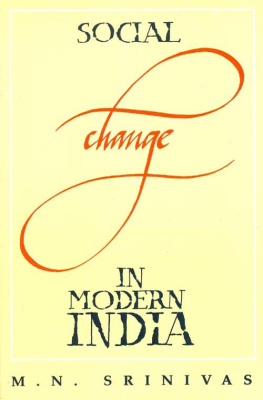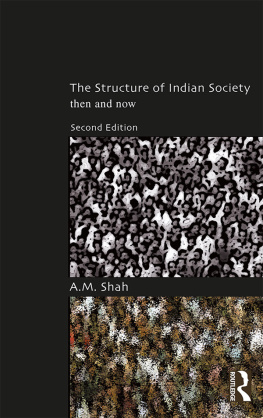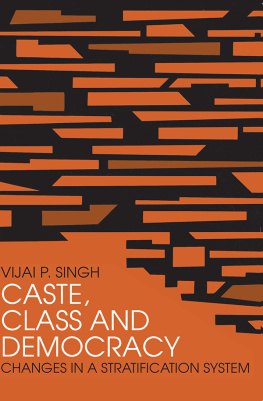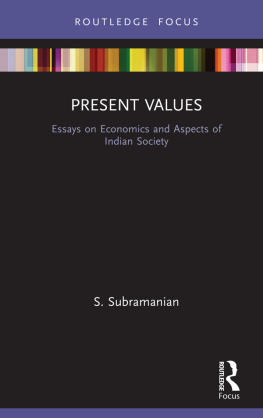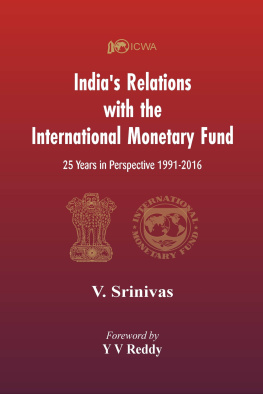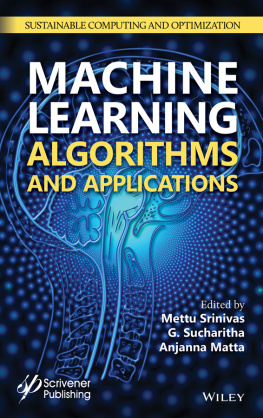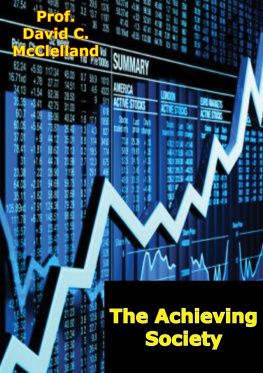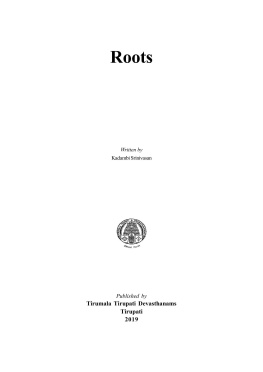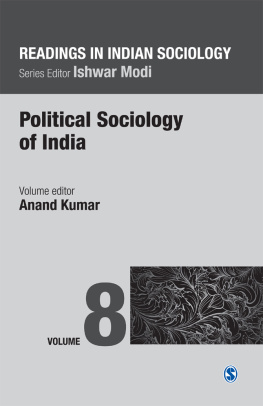Social Change in Modern India
For our entire range of books please use search strings "Orient BlackSwan", "Universities Press India" and "Permanent Black" in store.
Social Change in
Modern India
M. N. SRINIVAS
Social Change in Modern India
Orient Blackswan Private Limited
Registered Office
3-6-752 Himayatnagar, Hyderabad 500 029 (A.P.), INDIA
e-mail:
Other Offices
Bengaluru, Bhopal, Chennai, Guwahati,
Hyderabad, Jaipur, Kolkata, Lucknow, Mumbai,
New Delhi, Noida, Patna, Vijayawada
Orient Blackswan Pvt. Ltd. 1972
First Orient Blackswan impression 2009
Reprinted 2009, 2010, 2011, 2012, 2013, 2014, 2015, 2016, 2017
eISBN 978-93-5287-578-8
e-edition: First Published 2018
ePUB Conversion: .
All rights reserved. No part of this publication may be reproduced, distributed, or transmitted in any form or by any means, including photocopying, recording, or other electronic or mechanical methods, without the prior written permission of the publisher, except in the case of brief quotations embodied in critical reviews and certain other noncommercial uses permitted by copyright law. For permission requests write to the publisher.
PREFACE
THE RABINDRANATH TAGORE MEMORIAL LECTURESHIP, which was inaugurated at the University of Chicago in October, 1961, was continued at the University of California, Berkeley, by lectures delivered in May, 1963. The lectures formed the kernel of this volume.
Rabindranath Tagore is justly known as Indias greatest modern poet and one of its greatest modern thinkers. In these aspects he is celebrated by other holders of the Lectureship. He is less widely thought of as a traveller to the West and an observer of the West which had already in his time made so great an impact on his beloved country. His comments on his American and European travels showed him intensely interested in the relationship of India to the rest of the world and in the inter-influences that modern contacts would produce. If such influences have taken forms that might have surprised and perhaps even shocked him, it is unthinkable that he would have failed to be interested in an analysis by an ethnologist, and an Indian ethnologist at that, of what has happened and is happening.
This ethnologist,Indias leading social anthropologist,is Mysore Narasimhachar Srinivas. In 1952 he first introduced the notion of Sanskritization as an underlying process of Indian social change, in his book Religions and Society Among the Coorgs. Since then there has been no more influential concept in the discussions on change in Indian society. In these lectures he has developed the idea both in itself and in its contrapuntal relations with that much more conspicuous process of change, Westernization. Both by training, as an Oxford social anthropologist, and by background, as a South Indian Brahmin, he is eminently fitted to give a sophisticated, yet intimate, expression to his themes, in a way that Tagore might well have appreciated highly. Not the least important part of the book, and an integral part of it by peculiarly intimate inner lines of connection, is Professor Srinivas apologia for the anthropologists role in the midst of the rapid change and modern development in his own society.
M.N. Srinivas position since 1959 as Professor of Sociology in the Delhi School of Economics of the University of Delhi only enhances the reputation which he has earned by his notable series of writings in Indian ethnology. His Coorg book followed the earlier Marriage and Family in Mysore (1942), and was joined in 1962 by the collection of his articles, Caste in Modern India, and Other Essays. Acknowledgement of his outstanding position as an interpreter of India is to be seen in his Simon Senior Research Fellowship, Manchester University (19531954), his Rockefeller Fellowship in Great Britain and the United States (19561957), and his Fellowship at the Center for Advanced Study in the Behavioral Sciences, Stanford (19641965). He was awarded the Rivers Memorial Medal of the Royal Anthropological Institute of Great Britain and Ireland in 1955, and the Sarat Chandra Roy Memorial Gold Medal of the Asiatic Society (of Bengal) in 1958.
A great debt of gratitude must be acknowledged to the patrons who made the Lectureship possible, especially to Mr. and Mrs. Harvey Breit of New York and to the Asia Foundation. The administration of the Lectureship by the Committee for the Rabindranath Tagore Memorial Lectureship of the Association for Asian Studies has been immeasurably forwarded by the efficient and loving labours of Dean Richard L. Park of the Division of the Social Sciences, University of Pittsburgh. At the University of California, Berkeley, help was provided in connection with the lectures by the Committee for Arts and Lectures and, most especially, by the Center for South Asia Studies, Institute of International Studies.
M.B. EMENEAU
University of California,
Berkeley
AUTHORS PREFACE TO 1966 EDITION
THE COMMITTEE FOR THE RABINDRANATH TAGORE MEMORIAL LECTURESHIP of the Association for Asian Studies did me the honour of inviting me to give the Tagore Lectures for the academic year 19621963 at the University of California in Berkeley. I chose as my theme Social Change in modern India, and I gave four lectures on it during May, 1963. I did not have an opportunity to revise them for publication until September, 1964, when I came to the Center for Advanced Study in the Behavioral Sciences, Stanford, as a Fellow. I was very fortunate in that I was able to carry out the arduous task of replanning and rewriting the lectures in the shram-like atmosphere of the Center. I take this opportunity to express my profound thanks to the Director of the Center, Dr. Ralph Tyler, and all members of the Centers staff, for their uniform courtesy and help to me during my stay there from September, 1964, to December, 1965.
In June, 1963, I was a Simon Visiting Professor in the Department of Social Anthropology and Sociology at the University of Manchester, and this appointment gave me an opportunity to hold a series of seminars with Professor Max Gluckmans class on the theme of the Tagore Lectures. I benefited greatly from the stimulating discussions which followed the reading of the papers, and I am thankful to Professor Gluckman and his colleagues for their critical and friendly interest in my work. I am indebted to my colleagues in the Department of Sociology in the University of Delhi, Drs. M.S.A. Rao, Andr Beteille, and Arvind Shah, who criticized the earlier drafts of the lectures and also provided me with information on points which I raised in my letters to them. Professors R. Bellah, D. Mandelbaum, and M. Singer have placed me in their debt by taking time from their own work to read my manuscript and make several suggestions for its improvement. I gratefully acknowledge the editorial advice and help of Miss Miriam Gallaher, research assistant at the Center for Advanced Study, and I am certain that the manuscript has gained in clarity as well as readability as a result of her efforts. I am also grateful to Mrs. Joan Warm-brunn for her patience and skill in typing the different drafts of the lectures and for much other secretarial help as well.
When I accepted the invitation to give the Lectures, I thought that I should choose an all-India theme though even then I had some idea of the risks I was running in so doing. The vastness and diversity of India and the lack of adequate data in many areas make generalization extremely hazardous. But that does not obviate the need to see cultural and social processes in an all-India perspective if only to locate some of the problems that need to be given priority in future research, and the areas where information is either totally lacking or very poor.

